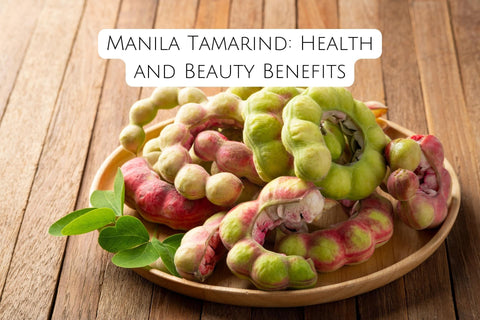A durian, a large fruit with hundreds of spiky little pieces, is a perfect example of what can be achieved when humans look to the insect for inspiration. Durian is a unique tropical fruit that used to be sold in Asia back in the 90's. The word ‘durian’ is derived from the Malay word ‘Duri’ whose meaning translates to the thorns of the fruit. Durian has a broad range of cloves, cinnamon, turmeric, vanilla, and orange flavours. Durian is a fruit, feed crop and cucumber. Researchers have discovered that durian can be a great source of vitamin B6 and folic acid. It contains antioxidant properties that are responsible for keeping our body in the best shape and prolonging life.
Nutritional Value of Durian:
Durian is an easy fruit to grow in your own backyard and can be grown indoors. The tart, sometimes bitter, fruit contains diverse compounds with vitamin C and water-soluble dietary fiber (also called gummy). In addition to the bioactive compounds mentioned above, it also contains lignans in plants such as Epimedium spp.
Properties of Durian:
A study by Virginia Tech University researchers found that durian fruit has the potential to reduce body weight, cholesterol, and blood pressure.
- It may be an antioxidant. It may lower blood sugar level through increasing insulin function and fat oxidation.
- It may inhibit the spread of breast cancer
- It may enable better speaking results
- It can attract mosquitoes. It may provide better protection against malaria. It may provide a remote sensor.
Potential Uses of Durian for Overall Health:
Potential use of durian as an antioxidant
Durian provides antioxidant benefits due to its high antioxidant content. Antioxidants may promote growth of Durian fruit. A review on antioxidant compounds in Durian fruit found that some compounds in the fruit may be protective against certain types of cancer. If this sounds interesting to you, we're happy to help make your dream come true. We already know a great deal about the molecular composition of durian and its structural characteristics. However, it is still unclear how exactly durian can help relieve oxidative stress in humans.
Potential use of durian for diabetes
Diabetes is a chronic condition that affects millions of people around the world. While there are many treatments available, some natural remedies have been found to be effective in managing the symptoms of diabetes. One such remedy is durian, a tropical fruit native to Southeast Asia.
Durian has been studied extensively for its potential use in treating diabetes. Studies have shown that it can help reduce blood sugar levels, improve insulin sensitivity and even reduce oxidative stress associated with diabetes. Furthermore, it may also help reduce inflammation and improve overall health outcomes for those suffering from diabetes.
In conclusion, durian has great potential as a treatment for diabetes and should be explored further by medical professionals.
Potential use of durian for lowering cholesterol
In the same study, rats were given A-B diets that contained all kinds of vitamins and raw food ingredients, with most of them being allowed to eat everything that they wanted. For example, some of these esters are found in sauces and marinades, increasing the risk of heart disease. Get ready for a great and delicious day at work! The durian fruit is said to have been shown to be good for increasing the levels of your cholesterol. However, if you are unable to reach a satisfactory level of your low cholesterol, you should consult your doctor (or dietician) regarding the appropriate dosages.
Potential use of durian for cancer
Bioactive compounds like polyphenols present in durian may be beneficial for cancer due to their ability to relieve oxidative stress. Following some initial research, Phytochemicals have been found to be effective anticancer agents. In many Asian countries, durian is known as a traditional food mainly eaten during the winter months. The traditional use of durian has altered this durable cocoon fruit in northern Southeast Asia and now it is commonly found in almost every peninsula and island of South East Asia for food. Durian is a tropical fruit that has been used for traditional medicine for a long time in Southeast Asia. The first scientific study on its effect on humans was done back in 1996 and more recent studies were only conducted after SARS broke out. Test reports of durian's impact on humans suggested slight drowsiness, but no significant side effects. Most studies gathered from Asian countries.
Potential use of durian to enhance digestion
There is limited scientific evidence to support the use of durian as a treatment for digestive issues. However, some people believe that durian may have potential digestive benefits due to its high fiber content.
Fiber is a type of carbohydrate that is not digested by the body and passes relatively unchanged through the digestive system. It can help to bulk up the stool and make bowel movements more regular, which may be beneficial for people with constipation. Durian is a good source of fiber, with about 3.5 grams per cup (160 grams) of the fruit.
Potential use of durian for malaria and jaundice
The leaves and roots of durian may be used as a natural antimalarial. It may lower the temperature of the body due to its antipyretic effect. Further research is needed to check if durian can help with malaria and jaundice. To add, crepe myrtle is useful for fighting daytime headache as well. If the condition is treated quickly, it can be controlled. You can also treat jaundice by swallowing lots of fresh lemons and eating plenty of peas.
How to Use Durian?
-
Durian pulp can be used to cut the crisp outer surfaces of slices of watermelon.
-
Tempoyak is made from durian fruit by fermentation. It is also a flavour in foods, drinks, and desserts.
-
Durian ice cream is the best way to enjoy a milkshake made from durian.
-
Durian is a Ripe Tummy's Weapon.
Side Effects of Durian:
Durian is a tropical fruit that is native to Southeast Asia and is known for its distinctive, strong smell and spiky exterior. While it is a popular food in many parts of the world, there are some potential side effects that you should be aware of if you are considering adding durian to your diet.
- One potential side effect of durian is allergic reactions. Some people may be allergic to durian or other tropical fruits, and may experience symptoms such as rash, hives, swelling, difficulty breathing, or anaphylaxis (a severe, life-threatening allergic reaction).
- Durian is also high in calories and contains a significant amount of sugar, so it should be consumed in moderation as part of a balanced diet. Excessive consumption of durian or other high-calorie, high-sugar foods can contribute to weight gain and increase the risk of obesity, which is associated with a number of health problems.
- In addition, durian has a strong smell that some people find unpleasant. The smell may linger on the breath or in the environment after consuming durian, which can be off-putting to some people.
- It is always a good idea to talk to your healthcare provider before adding any new food to your diet, especially if you have a history of allergies or other health concerns.
Precautions to Take with Durian:
If you are considering adding durian to your diet, there are a few precautions that you should take:
- Be aware of any allergies: Some people may be allergic to durian or other tropical fruits, and may experience symptoms such as rash, hives, swelling, difficulty breathing, or anaphylaxis (a severe, life-threatening allergic reaction). If you have a history of allergies or are unsure whether you are allergic to durian, it is important to talk to your healthcare provider before trying it.
- Watch your portion sizes: Durian is high in calories and contains a significant amount of sugar, so it should be consumed in moderation as part of a balanced diet. Excessive consumption of durian or other high-calorie, high-sugar foods can contribute to weight gain and increase the risk of obesity, which is associated with a number of health problems.
- Consider the smell: Durian has a strong, distinctive smell that some people find unpleasant. The smell may linger on the breath or in the environment after consuming durian, which can be off-putting to some people. If you are sensitive to strong odors or are concerned about the smell, you may want to avoid durian or limit your intake of it.
- Wash your hands thoroughly: Durian has a spiky exterior, and the spines can be sharp. When handling durian, it is important to wash your hands thoroughly to avoid any accidental cuts or scratches.
- Store durian properly: Durian should be stored in a cool, dry place and should not be refrigerated until it is fully ripe. Once ripe, it should be stored in the refrigerator to extend its shelf life.




Comments (0)
There are no comments for this article. Be the first one to leave a message!